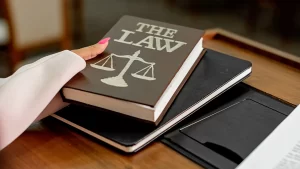
Members of America’s armed forces face a number of unique challenges in their lives. One of the most challenging aspects of serving in the military is balancing a family life and accommodating a family’s needs with the duty owed to one’s country. In fact, nearly every aspect of family relations can be affected by military service, including divorce. Unfortunately, the nature of military service can also make divorce proceedings even more complicated for those involved than other types of divorce. For this reason, qualified legal counsel is particularly important in cases of military divorce.
If you are considering divorce, you should speak with a considerate divorce attorney who will handle your affairs with skill and compassion. Contact a Monmouth County military divorce attorney of the Law Office of Andrew A. Bestafka, Esq., today at (732) 898-2378 to speak with a qualified member of our legal team about the details of your situation.
Why do you need a Military Divorce lawyer?
Military divorces have unique policies and procedures that can make them more complicated than civilian divorces. For example, you or your spouse’s military status may impact the division of military pensions and benefits, residency requirements, and even when you can and cannot file for divorce.
On top of the particular circumstances resulting from you and your spouse being in the military, there are all of the other questions that come with divorce. Child custody, child support and visitation, and the division of property are all common aspects of divorce that a lawyer can assist with. A military divorce lawyer can handle these typical aspects of divorce along with the special circumstances that come from you or your spouse serving or having served in the military. A qualified and experienced military divorce lawyer can help you navigate these processes, understand your legal options and help you to craft a resolution to the divorce that is just and fair.
How can Law Office of Andrew A. Bestafka, Esq. help?
Law Office of Andrew A. Bestafka, Esq. has been working in family law for nearly ten years, receiving overwhelmingly positive feedback from clients in cases in a variety of family law practice fields, including military divorce. Mr. Bestafka, a native of Freehold, has been able to build a strong legal and professional network across Middlesex, Monmouth, and Ocean counties and New Jersey, providing you with the knowledge, experience, and familiarity with his community to help you reach a fair settlement in your military divorce case.
Navigating the legal processes of military divorce can be challenging, confusing, and overwhelming. Andrew Bestafka is a Monmouth County divorce lawyer with an intimate familiarity with the legal procedures and the people he serves, as well as the legal know-how to help you achieve a fair settlement from a military divorce.
Aspects of Military Divorce
Filing for divorce can be a long, complex, and emotionally exhausting process. Filing for divorce while you or your spouse is in the military can complicate matters even further. You may face several legal restrictions on when you may file for divorce, including filing during and after active duty service. Additional federal and state provisions may also add layers of complication for divorce proceedings for military members and their spouses related to divisions of property, benefits (including those for nonmilitary spouses), as well as issues of child custody and child support.
Division of Property
New Jersey is an equitable distribution state, meaning that while courts seek to divide property in an ‘equitable’ (fair) manner, it may not always be in an equal one. Many factors, including the earning capacities of the spouses, physical and mental capacities, and even the length of the marriage can factor into how property is divided. Other issues involved with the division of property in the event of military divorce include:
- Solving valuation (of property) issues
- Enforcing premarital agreements
- Searching for, locating, and valuing hidden assets
- Division of military retirement benefits
A lawyer can help ensure that your property is divided fairly between you and your spouse.
Military Benefits and Benefits for Nonmilitary Spouses
Division of benefits is another issue that frequently arises in divorce proceedings. Federal laws prohibit certain benefits from being treated as property or distributed to nonmilitary spouses. Additionally, a nonmilitary spouse has certain restrictions on their entitlement to military benefits. The survivor benefit plan election is another issue that should be considered and discussed with a legal professional to fully understand your options during divorce proceedings.
Child Custody
Child custody can be an endlessly complex legal issue and one that becomes even more complex for military families who may move often or have family members overseas. Understanding your rights in reaching custody agreement and crafting an equitable and satisfactory solution for child custody and visitation is an important aspect of any military divorce settlement.
Child Support
Like child custody issues, understanding child support laws and reaching an agreement can be endlessly complex and overwhelming. Military families, who may have varying levels of income potential or logistical or personal capacity to care for children often have additional circumstances that must be examined when reaching a child support agreement. Child support guidelines established by the state of New Jersey can help a divorcing couple reach an agreement, but require the help of an experienced legal professional.
Filing for Military Divorce
 A number of special factors must be considered when it comes to divorce for military service members, but one of the most important aspects is choosing where to file for divorce. For those in the military, the choices may include:
A number of special factors must be considered when it comes to divorce for military service members, but one of the most important aspects is choosing where to file for divorce. For those in the military, the choices may include:
- Filing in the state where the individual resides
- Filing in the state where the service member is stationed
- Filing in the state where the military member is legally listed as a resident
You, as a uniformed member, likely have a number of concerns regarding your future and divorce, such as what to do with any divorce papers you may have been served or your retirement pay. When it comes to issues such as these, the Uniformed Services Former Spouse Protection Act provides certain protections for military members.
Contact Us
If you are considering getting divorced and either you or your spouse is in the military, we can help you with the advice and representation you need to reach a satisfactory divorce agreement. Contact a Monmouth County divorce lawyer of the Law Office of Andrew A. Bestafka, Esq., at (732) 898-2378 today to discuss your case with a knowledgeable and understanding legal professional.
